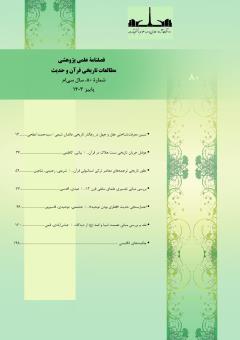نقد و بررسی مبانی عصمت انبیا و ائمه (علیهمالسلام) از دیدگاه ابنتیمیه با تکیه بر کتاب «منهاج السنة»
محورهای موضوعی : تاریخ قرآن
علی عباس آبادی
1
*
![]() ,
محسن قمی
2
,
محسن قمی
2
1 - دانش¬آموخته دکتری کلام اسلامی و مدرس دانشگاه قم، قم، ایران (نویسنده مسئول).
2 - دانشیار دانشگاه باقرالعلوم، قم، ایران.
کلید واژه: عصمت, مبانی, ابنتیمیه, منهاج السنة, علامه حلی.,
چکیده مقاله :
ابنتیمیه تاثیر گذارترین شخصیت در تاریخ سلفی گری است که در حوزه های گوناگون اعتقادی اظهار رای نموده و نظرات او مورد توجه و تبعیت پیروانش قرار گرفته است. از جمله درباره اندیشه عصمت به مثابه یکی از ارکان مساله نبوت و امامت گفتگو نموده و این آموزه را زیر سوال برده است. او تقریباً در تمام مبانی و ادلهی عصمت خدشه میکند و در نهایت، هیچگونه عصمت مطلقی را برای انبیا و ائمهعلیهمالسلام نمیپذیرد. در مقابل سعی میکند با طرح و اثبات نظریهی «عصمت مجموعی امت» جایگزینی برای عصمت اولیای الاهی بیابد. او سه مبنای مهمِ: تعریف و شؤون امامت، قاعدهی لطف، و افضلیت ائمهعلیهمالسلام را زیر سؤال میبرد تا بدینوسیله، ادلهی مفید عصمت را از کار بیندازد. اما هیچکدام از اشکالات او به این سه مبنا وارد نیست و به تکتک آنها پاسخهای دقیق و اقناعکنندهای داده میشود. نظریهی عصمت مجموعی او نیز دلیل مستحکمی ندارد و نمیتواند اثبات شود و مبانی و ادلهی عصمت اولیای الاهی را زیر سؤال ببرد.
Ibn Taymiyyah is the most influential figure in the history of Salafism, who has expressed opinions in various areas of belief, and his opinions have been noticed and obeyed by his followers. Among other things, he discussed the idea of infallibility as one of the pillars of the problem of prophethood and imamate and questioned this doctrine. He violates almost all the foundations and proofs of infallibility and finally, he does not accept any absolute infallibility for prophets and imams. On the other hand, he tries to find an alternative to the infallibility of the divine parents by proposing and proving the theory of "total infallibility of the nation". He questions three important bases: the definition and affairs of the Imamate, the rule of grace, and the superiority of the Imams (peace be upon them) in order to destroy the useful evidence of infallibility. But none of his problems are related to these three bases, and precise and convincing answers are given to each of them. His total infallibility theory also has no solid evidence and cannot be proven and questions the foundations and evidences of the infallibility of divine saints.

